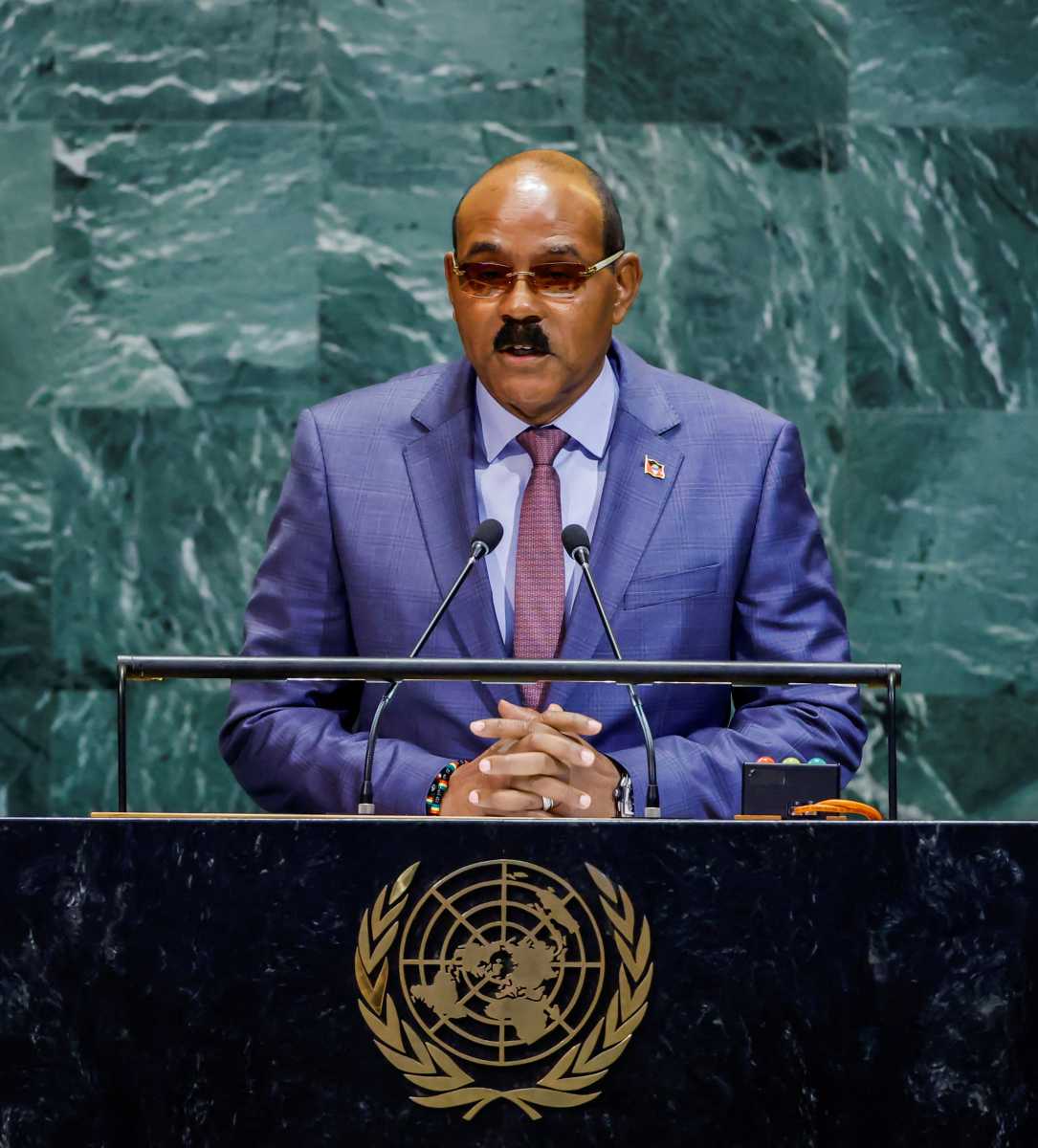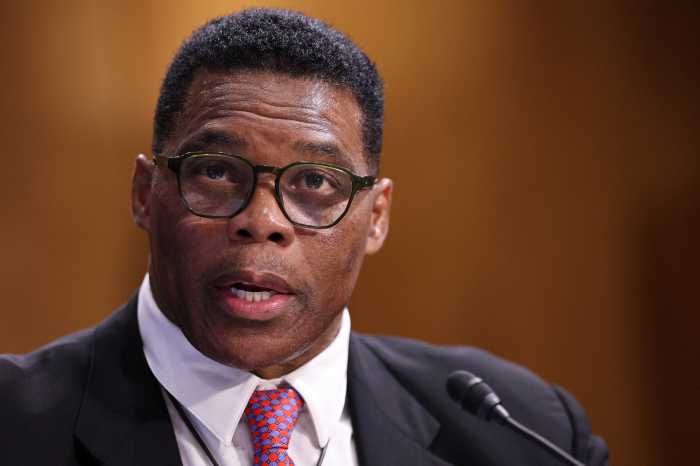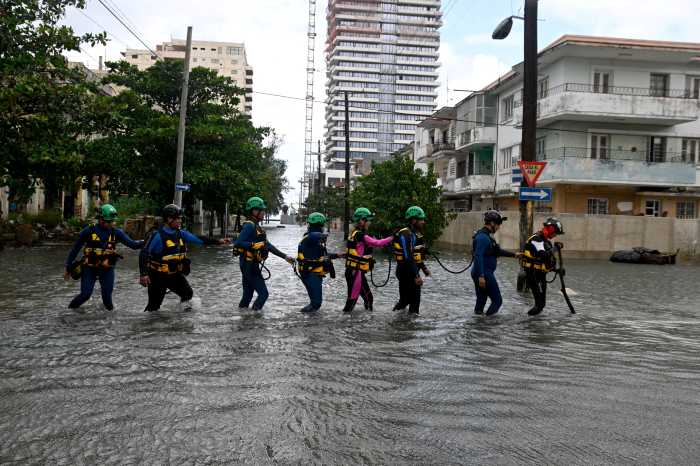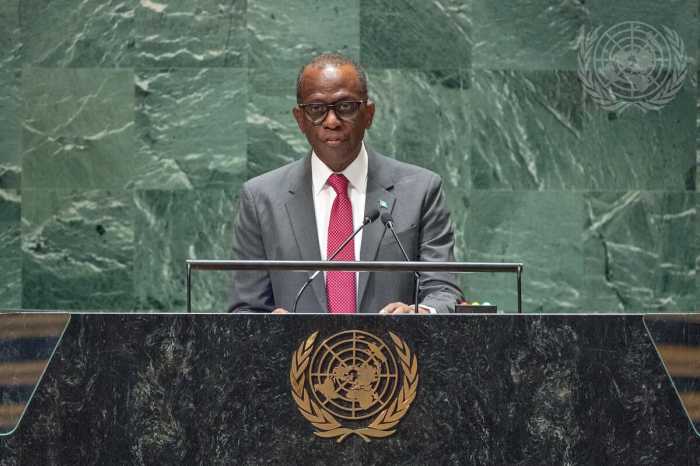Bahamas
The Bahamas has become the second CARICOM country to not vote in support of a Net-Zero Shipping Framework (NZF), which aims to reduce emissions in the maritime sector.
Earlier, Antigua and Barbuda Prime Minister Gaston Browne said St. John’s did not favor voting in support of the measure being pushed by the International Maritime Organization (IMO), which was approved in April this year.
“Like the United States, we are equally concerned about this transition, and we think there should be a deferral, and if there is no deferral, then we clearly will abstain,” Browne told the state-owned ABS.
“We will not vote against it because at the end of the day, we are one of the most strident climate advocates as we have been advocating for net-zero, so we do not want to undermine our overall position on this transition to renewables and to achieve net-zero as soon as possible,” Browne said.
“The Bahamas had some time ago written to the IMO to ask for the vote to be postponed, and if the vote is not postponed, we expect to abstain,” said Foreign Affairs Minister Fred Mitchell.
IMO Secretary-General Arsenio Dominguez said that while the IMO Net-Zero Framework “is not perfect,” it “provides a balanced basis for our further work ahead of its entry into force in 2027.”
“This process has been inclusive and thorough,” Dominguez added, urging delegates to approach the talks “with diplomacy and respect.”
Grenada
The Grenadian government suggests establishing a trilateral joint commission with Venezuela, St. Vincent, and the Grenadines to guide the process of separating maritime boundaries.
“Grenada has also started an initiative to delimit the maritime boundaries with Venezuela, St. Vincent and the Grenadines. We completed the process, you know, with Trinidad and Tobago back in 2012. We have never been clear on what the boundary is between Grenada and Venezuela, and what the boundary is between St Vincent and Grenada,” said Nazim Burke, chairman of Grenada’s oil and gas Technical Working Group (TWG).
Burke, who provided an update on the TWG activities during a town hall meeting, said, “What has happened is that our prime minister has put forward a proposal to the President of the Bolivarian Republic of Venezuela and the Prime Minister of St. Vincent for the establishment of a trilateral commission, a joint trilateral commission that will be comprised of 10 people.”
“In essence, there will be three people from each of the three countries and a chairman from another country that will guide this process and work towards the completion of the boundaries between our three countries,” he said, adding that leasing property, whether on land or sea, would require the owner to know the boundary. “It is a very important step as well because you cannot go about leasing out land to people without knowing where your boundary is, you cannot go about leasing out maritime space to people without knowing where your boundaries are,” he said.
Burke told the town hall meeting that during the past six months, the TWG members have been holding discussions with relevant stakeholders, including Trinidad and Tobago and other companies, which have conducted research and have spatial vector data about Grenada’s oil and gas.
Guyana
The Guyana government has welcomed the United Kingdom Export Finance’s (UKEF) decision to increase its financing capacity for Guyana from £2.1 billion to £3 billion.
Minister of Finance Dr. Ashni K. Singh commended the significant increase and described it as a powerful signal of London’s “strong and growing confidence” in Guyana’s robust economic trajectory.
The UK government announced a recent high-level meeting between President Irfaan Ali and a visiting delegation, including UKEF representatives and the Deputy Trade Commissioner for Latin America and the Caribbean, Jonathan Knott.
“The enhanced support from UKEF is expected to assist in ramping up development in priority sectors identified by the government of Guyana over the next five years.
Furthermore, according to a government statement, “Guyana’s private sector is also expected to benefit from additional financing to expand its operations and form strategic partnerships with British companies.”
Singh expressed gratitude on behalf of the Guyana government for Britain’s support over the years, “which has been instrumental in fostering collaboration between the two nations, as Guyana continues to accelerate its development and solidify its position as a leading investment hub in the region.”
Jamaica
LANDS, the emerging political movement in Jamaica, has expressed deep concern over the increasing militarization of the Caribbean, facilitated by governments that publicly commit to maintaining the region as a Zone of Peace while quietly enabling foreign military involvement.
In a strongly worded statement, the group criticized Caribbean leaders for allowing foreign powers to deploy military hardware in the region and for collaborating with the United States Southern Command (SouthCom) on security operations.
“Our leaders go abroad to deliver poetic rhetoric about peace and sovereignty, yet their domestic actions contradict those promises,” the statement read. “These fine words may make good headlines, but they do nothing to protect the people who continue to suffer under the shadow of foreign military influence.”
The movement warned that the Caribbean risks becoming entangled in the same kind of devastation seen in other conflict zones, comparing it with US-backed military interventions in Iraq, Afghanistan, and, more recently, Gaza, arguing that similar policies of militarization and foreign control could have grave consequences for small island nations.
The statement also highlighted the ongoing crisis in Haiti.
“After supporting coups and foreign missions that deepened Haiti’s suffering, some Caribbean governments are now opening the door to more of the same,” the group said. “These are the same forces that cannot be trusted to offer real solutions.”
The movement further criticized the deployment of US naval fleets in the Caribbean, ostensibly to combat drug trafficking, saying such missions allow foreign soldiers to operate freely in regional waters, sometimes harassing local fisher folk and limiting their livelihoods.
The group warned that normalizing such activity could pave the way for deeper foreign control. “How long before the same country that floods our region with guns deploys troops within our borders – claiming to fight crime or protect democracy?” the statement asked.
Calling on CARICOM to “grow a spine” and assert regional sovereignty, the movement urged leaders to prioritize the interests of Caribbean people over foreign powers.
St. Kitts & Nevis
The St. Kitts and Nevis government has welcomed a decision by the St. Vincent and the Grenadines-based Lynch Caribbean Brokers Ltd to include the twin-island federation in the Regional Economic Agri-Insurance Program (REAP).
This was announced during the recently concluded 19th Caribbean Week of Agriculture (CWA 2025). Agriculture, Fisheries and Marine Resources Minister Samal Duggins said the insurance program should be a vital pillar for national resilience and regional innovation.
“Agriculture and fisheries remain at the heart of our nation’s food security, livelihoods, and economic resilience. Yet, farmers and fishers are increasingly vulnerable to risks beyond their control – climate change, unpredictable weather patterns, natural disasters, pests, and market volatility,” he added.
Under the REAP project, local farmers and fishers are expected to benefit from a regional insurance program that aims to reduce their vulnerability to natural disasters, market volatility, and the growing impacts of climate change.
REAP, developed by Lynch Caribbean Brokers Ltd of St. Vincent and the Grenadines, will soon be launched in St. Kitts in partnership with the government through the Ministry of Agriculture, Fisheries, and Marine Resources.
Caribbean Lynch Brokers managing director, Damian Bowen, said that the program’s design was shaped by extensive national consultation, adding that “REAP’s development was the result of careful collaboration with key stakeholders during the first quarter of 2025.
“Together with experts from the Ministry of Agriculture and members of the farming and fishing communities, we created a model tailored to real needs rather than abstract assumptions.”
REAP is expected to introduce livelihood protection, a national enrollment campaign, public education seminars, and digital dashboards that improve transparency and data-driven decision-making.
Duggins said the government is committed to strengthening resilience across the agriculture and fisheries sectors.
— Compiled by Devika Ragoonanan
























